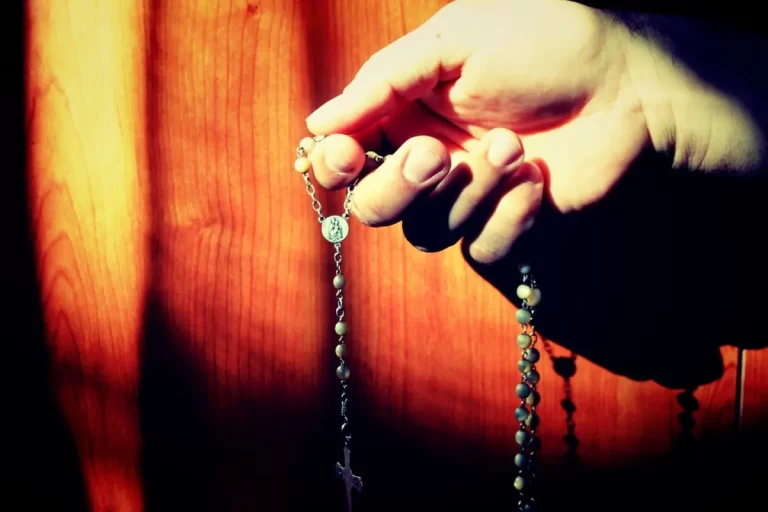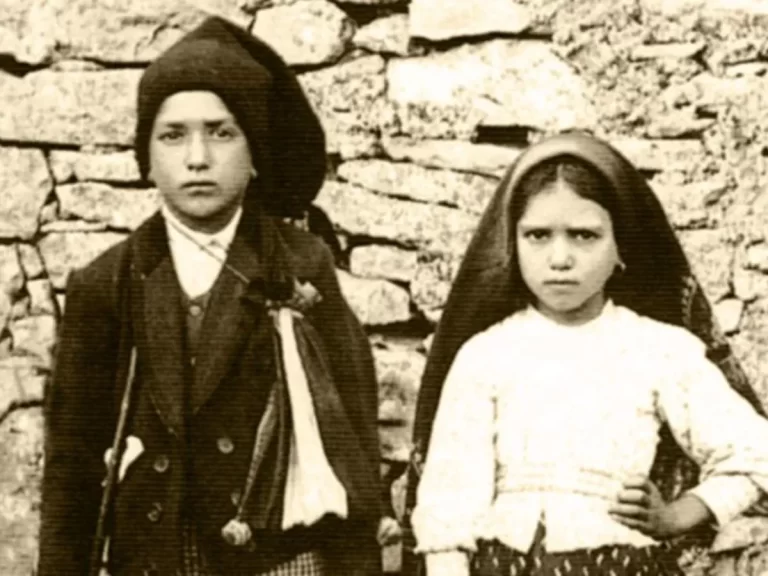Common Characteristics of the Life Cycle of the Family
Families go through different stages which are seen throughout and as we grow as people, these stages go through from the very moment we are born and we take on responsibilities. It’s all about the life cycle of the family .
family life cycle
In relation to this we can specify that it is about the different emotional and intellectual stages that the human being goes through, we all go through situations from the moment of birth until the age of old age; They are called the family life cycle.
Each of these stages make us live and face different options of family life which allow us to develop and acquire new virtues or skills. When we learn such skills it helps us deal with the changes that all families go through.
It cannot be said that all people will go through such situations or stages without facing a number of problems. There are also situations such as serious illnesses, economic problems or the death of a family member or loved one, which have certain consequences and will depend on how you deal with them.
It can be considered a fortune if virtues are ignored at a certain stage, since they can be learned later.
Stages of the life cycle of the family
As we have already said, the stages of the life cycle of the family can be defined as follows:
Independence
Life as a couple or marriage
Parenting: From the infant stage to adolescence, and many times beyond.
The phase of separation of the children when they are already adults.
Retirement or old age.
Why is it important to understand the life cycle of the family?
The answer to this question is the mastery of skills and the different moments of such stages, all of which allows us to successfully move from one stage to another. If the person does not master these skills, it could happen that he advances the same to the next stage of the cycle, but nevertheless he will have more options to have difficulties in relationships and possible transitions.
The life cycle theory of the family gives suggestions on the successful transaction and it helps in the prevention of illnesses, emotional problems or that are related to stress.
If we are a father, mother, son, brother or sister, and we are related by blood or affection, experiences in the life cycle of the family can affect who we are and what we will become. The more we understand the challenges of each and every such stage of the cycle, the more options we will have in moving forward to success.
What issues can alter the normal cycle?
In relation to the stress of life and day to day, also the fact that we can carry any type of chronic medical problem, as well as any other vital problem such as emotional crises that affect the normal life cycle. These two aspects constant stress or crisis; seriously affect them since they delay the transition to the next stage of life.
How can I improve my family life cycle?
People must be assured at all times that they can learn skills that may be lacking in their lives and that of their families at any stage. Reflection, education, and perhaps counseling itself are ways to improve yourself and your family life.
Besides, they are actions that can help other situations such as the process of a divorce or integrating a non-traditional family base.
independence stage
This stage of independence is often the most important in the family life cycle. When we move to the age of young adulthood, the emotional distance from their own family begins.
During this stage, it becomes a stage of great effort to become capable in all ways; also from the emotional, physical, social and financial stage. Subsequently, the beginning of the development of such skills and unique characteristics that specify their individual identity.
Intimacy is a vital skill to be developed from the years of young and independent adulthood. As intimacy we can define it as the ability to develop and maintain close relationships, which make it possible to survive bad times and another series of difficulties. In intimate relationships, we must keep in mind that we must learn about:
Commitment
Common or similar aspects
compatibility
attachment
Confidence in another person not directly related to the family
The emotions that are shared within a relationship
We must also learn who we are outside of our family identity. To develop an intimate relationship will depend on the success that you have in terms of development, your individual identity at a certain stage of the past life.
People may have ideologies since there may be lesbian, gay, bisexual or transgender leanings, such a stage could include giving out knowledge and sexual orientation, or even “coming out” to family and friends.
If we see the interests and achievements of professional studies, it becomes part of the development of one’s own independence. If we want to live with success but away from our family, we must develop economic and emotional independence.
At such a stage, responsibility for the individual’s own health begins. We become responsible for physical, food, medical needs. As for the habit of healthy habits at this stage, such as good nutrition, frequent exercise and safe sexual practices, it is usually important for good health and happiness throughout life.
As we move forward there are new situations of independence throughout his life. Even when we advance to another of the stages of life, as would be the case of life as a couple, it is not causal for him to continue learning about independence as for that stage.
When people go through stages of independence, they expect some special situations, such as:
They want to see themselves as individuals to the family as parents, siblings, or other members of the larger family.
They want to develop intimate relationships with people outside of their family.
They seek to be stable in terms of their work and profession
Other important qualities that develop during these stages are:
moral sense
Confidence
Work ethics
The initiative
Identity or knowing who each individual is in relation to the world
Couple’s life stage
The stage that follows in the cycle of family life is about life as a couple. At this stage, qualities such as trust that people acquire during the stage of independence can be used, the capacities of commitment to a new family and a new life can be investigated.
When it comes to the stage of committing to an intimate relationship, it is also about the process of building and adapting the relationship, whether through marriage or committed unions, all of which require particular skills to put into practice.
When the human being is linked to families through marriage or a union of another nature, in order to form a new family system. This family system will include ideas, personal values, expectations, thoughts and personal values. All of them are determined in terms of relationships and the acquisition of experiences that precede with the original family.
When we get married or join a couple, there is the combination of a family system with that of the spouse or the partner that is chosen.
Regarding this, we must say that it is necessary to rearrange one’s own goals and that of the current partner. In all relationships, even the most intimate relationships, both parties must have the ability to take different ideas and create an option that neither of them had seen before.
This is different when making concessions, which implies not giving up anything. Instead what you are looking for is a possible third option that is better.
The discovery of some ideas or possibilities that were had in the past and that are not real in the current stage in which the person finds himself becomes possible. Among some of the common points that must be taken into consideration in the adaptation stages, we can classify them as follows:
The finances
Recreational activities or hobbies
Lifestyle
Recreational activities or hobbies
Sexuality or your compatibility with other relatives
The friendships
Prioritize the needs of others before your own.
The purpose of this goal is the achievement of independence. This happens when people are able to enter fully into a relationship with another person. Likewise, independence requires that we share the goals we have and that we are able to put the needs of others above our own.
We must say that before we achieve independence, it is necessary to have a high level of it. The skills that we learn in life serve as a basis for establishing other relationships, such as those between father, mother, son, teacher, student, doctor and patient.
When sharing as a couple we can learn:
advanced interpersonal communication
Problem solving ability
We obtain common goals of both spiritual and emotional development
We learn the option of creating limits in relationships
We learn when to place the needs of others before our own or give importance to those of others than our own.
Some research shows that at the beginning, marriage is full of passion, intimacy, various aspects that can lose importance during the experience of the following stages of a successful marriage. At this stage, the marriage contains a high rate of acts of consideration or kindness and praise.
The skills we learn at this stage are often important in terms of developing real independence and the position of having a healthy and cooperative relationship. Among the difficulties of this stage we can mention:
Making the move to the new family system
The inclusion of the spouse or partner in relationships with family and friends
That we have made a commitment to make the marriage work well
Placing the needs of others before your own
The two people will present less stress if the transition to the new family system takes place without so many problems. This means that stress will decrease and they will be healthier.
The goals of both at this stage of the family life cycle are:
The formation of a new family with the new partner
Rearrange relationships with your original family and friends to include your new spouse
Parenting: From Infancy to Adolescence
Making the decision to have a baby
At any time during the marriage relationship, the spouses will seek the option of having a baby. Some couples know when they start the relationship that they do not want to have children. This is often considered one of the most difficult stages of the family life cycle.
This decision to have children affects individual development and family identity and even the relationship itself. Children require time and it becomes difficult to learn adequate skills that were not learned in previous stages. Many times the ability to communicate well maintains relationships and helps solve problems, this is put to the test during this stage.
The incorporation of a child to the new family nucleus causes an important change in terms of the functions of both spouses. Each of the parents will have three different but demanding roles: as a person, a partner and a parent. As new parents, their individual personalities change in relation to how they relate to themselves and to other people.
Skills learned in the independence and cohabitation stages, such as compromise or compromise, can help progress this stage of parenting.
Despite the joy of having a child, there is also likely to be stress and fear about these changes. Some women may be concerned about being pregnant and the birth process. Men when they are going to be parents tend to protect themselves from fears, fear, stress for themselves. This causes health problems.
Discussing physical emotional concerns with your family doctor, obstetrician, or counselor may be helpful in managing such difficulties that arise in the future.
raising young children
When the case occurs that we must adapt children to other relationships, it becomes an emotional process that is typical of this stage. Here the function of raising children and the change between being a member of a couple and becoming a father must be assumed.
As both of them grow as individuals, they become decision-makers with their families. When they keep expressing each other’s individuality well together as a couple, this results in the achievement of a well-established marriage.
The development and health of the child will depend on the capacity of both and the meaning they provide within the environment, it must be safe, affectionate and organized. Children will be happy when their parents enjoy a strong relationship.
Caring for young children lessens the amount of time you both have in relation to each other and time alone. If the proper skills are not developed in earlier stages, such as the practice of concessions for the good of the family, the couple’s relationship becomes tense.
An example of this is that divorce or relationships outside of marriage become more likely to occur from years of raising young children, if the parents did not learn strong skills from the preceding stages.
However, as for people who have correct stages, it becomes a very happy and rewarding time, even with all the difficulties that exist. In good conditions, they develop as a person, couple and family members.
Regarding this stage, the special goals that are given, regarding the incorporation of small children in the family, are:
The adaptation of the conjugal system to make children participate
Take on the responsibilities of being a parent
Rearrange relationships with the extended family and inclusion within it based on father and grandfather
Parenting in adolescence
Raising teenagers in the family can be quite difficult for the family and tests the skills for such relationships. It is also a time of growth and creative investigation for the family as a whole. The families that get along best during this stage are those that are solid, firm, flexible, and developed through good communication, problem solving, mutual care, support, and trust.
Most teens experiment with different thoughts, beliefs, and styles. That can cause family conflicts. Your strengths as a person and as part of a couple are critical as you navigate the increasing difficulties of raising a teenager.
There must be an effort to achieve a balanced atmosphere where the adolescent can feel support and security of their emotions, as well as opportunities to try new behaviors. Flexibility is a vital piece at this stage of the life cycle of the family since through these the children become independent and creative.
Set limits on the adolescent, but at the same time encourage exploration in him. Teenagers often question themselves on many aspects, including sexual orientations and gender personality.
Based on what has been learned in previous stages, people will feel more prepared and confident about the changes that your child is going through. If, on the other hand, one does not work or is not prepared for this stage, the person may feel threatened by the new developments of the adolescent son.
Flexibility in terms of the relationships that people play in the family life cycle is an aptitude of value due to development at this stage. Possibly there are responsibilities, such as those required to get a job, care for a person with an illness, which are attitudes that require each member of the family to assume different and often changing functions.
Likewise, at this stage, some relatives may experience a certain degree of depression or other suffering. Likewise, physical discomforts can occur, such as stomach upsets, headaches, somatization disorders, among many others; all related to stress.
Many times you can forget about pair feeding and individual growth. At the end of this stage, the father’s attention shifts from the maturing adolescent to the couple’s professional career. The neglect of the couple and their relationship can make this displacement difficult.
It is equally possible that the person begins to reason according to his function in relation to the care of parents who pass to the stage of old age. It is helpful at this stage to make your own health a priority as you enter the next stage of the family life cycle.
As for the special goals of this stage, in relation to being parents of adolescents, they are:
The adjustment between father-son in order for him to enter and leave the family system.
The displacement of attention regarding the couple relationship in middle age and situations related to the profession.
Begin shifting care and concern to the older generations of the family of origin.
The empty nest: separation from adult children
As for this stage of separation from adult children, it begins when the first child leaves the house and it happens that the nest remains empty. From the moment older children leave home, there are positive and negative consequences.
When the family develops significant type skills during the family life cycle stage, the children will be ready to leave home, ready to handle life’s challenges. Once there is freedom from the daily requirements of parenting, people may choose to fuel their own relationship and perhaps career goals.
The development of adult relationships with children becomes key to this stage. Possibly the challenge of accepting newcomer members into the family through the children’s partner relationships must be faced. In this case, the situation may arise in which new priority opportunities in life are set, forgiveness to those who may have caused some damage and the evaluation of beliefs regarding life.
If there was difficulty in the life stages that preceded it, there is a chance that the children would not have learned the skills they need to live well on their own. If the passage from one stage to the other is not made, it is possible that they no longer feel the compatibility with each other.
We must remember that you can still learn skills that might not have been learned. Introspection, education and psychological counseling can improve life and provide security at the time of the process of moving from one stage to another.
At this stage there may be cases of decreased energy levels and therefore loss of health. Some people are diagnosed with certain chronic diseases. The symptoms of such diseases can cause the limitation of normal activities and even hobbies or free time that they have enjoyed for a long time.
Health problems may appear that are linked to middle age. Health problems related to middle age may begin to appear.
As for such symptoms we can mention the following:
High blood pressure
weight problems
Arthritis
Osteoporosis
Menopause
Heart disease (coronary artery disease).
Depression
Diseases that are linked to stress
At this stage, it also becomes possible for parents to take care of themselves as they age. Such a situation could be stressful and affect health.
The goals that must be taken into account to achieve this stage are:
Return to the couple relationship without the presence of the children and thus rescue certain spaces between them.
Developing adult relationships with their adult children
Rearrange relationships to include in-laws and also grandchildren from the moment they create their own families.
Retired or old age stage of life
Many life changes happen at this stage. This is due to the fact that new members must be accepted in the family and also observe how others leave, generally leave or abandon a considerable part of the stage, all this at the time that the children marry or divorce, or even when they become in grandfather.
This stage can be a great adventure: at this stage you are given the freedom of the responsibilities of raising children and can simply enjoy the consequences of the sacrifices of a lifetime. Among the difficulties that people may face are support for other family members, even while investigating interests and activities or concentrating on achieving their relationship.
At this stage, some children find themselves caring for their elderly parents. There may be coping and difficulty meeting emotional, physical, and financial needs while trying to help maintain independence.
At this stage, as is known, the decline of certain physical and mental faculties begins or certain changes in the financial and social status may occur. Many times they must face the death of other family members, including their own partner. The quality of life at this stage will depend on the care you have put into your own health.
As for normal aging, it will affect the body and cause pain, wrinkles, bone loss. There is also the possibility of chronic mental and physical illnesses, all of which increase as age advances. However aging does not automatically imply the consequences of progressive deterioration of health.
Retirement can be happy and rewarding. Becoming a grandparent can bring joy without having to raise a child. Likewise, the situation can arise that some people in this stage may have financial problems and make their stage more difficult.
Regarding this stage, the goals that can be achieved in terms of the family’s life cycle include:
The maintenance of the interests and functions combined with those of the couple, as the years go by and the body ages.
Research of new social and family functions
Provide emotional support to adult children and all members of the original or extended family
Open a space in the family system for the wisdom and experience of older adults
Provide due support to the generation of older people without so many obligations for them
Managing absence due to the death of a partner, siblings and other colleagues and being prepared for one’s own death
You have to analyze life and make reflections on everything that has been learned and experiences about the life cycle
Regarding the above, there may be symptoms that are related to age, such as:
feel depression
pain and grief
elder abuse
Effects due to alcohol consumption
Growth and development, ages 11-14
Growth and development, from 6 to 10 years
Growth and development, from 12 to 24 months of age
Growth and development in newborn babies
Growth and development in babies ages 1 to 12 months
Anxiety
Growth and development, from 2 to 5 years
Growth and development, ages 15 to 18
Menopause and perimenopause
conclusion
In this article we have been able to see each and every one of the stages through which the human being passes from the moment of being a baby and is acquiring experiences and is burning stages and is going through different processes that are marking his life throughout such life experiences.
Likewise, we have been able to see how skills are acquired before and after the different stages and they prepare us to better face the different types of situations until we find ourselves with the stage that we could classify as final, such as old age. where it is already the phase where we feel already fulfilled, having lived as a couple, raised our children, enjoyed the grandchildren and now we live a phase of tranquility and where we are already in the stage of waiting for eternity.
We hope that the reader has been able to understand this topic that is so important for the different experiences of our lives. who has understood a topic that is considered important to be analyzed by families at the level of all experiences, since with these tips that have been reflected here we can in one way or another put them into practice and manage to live better each of these stages that They pass little by little through our lives.







